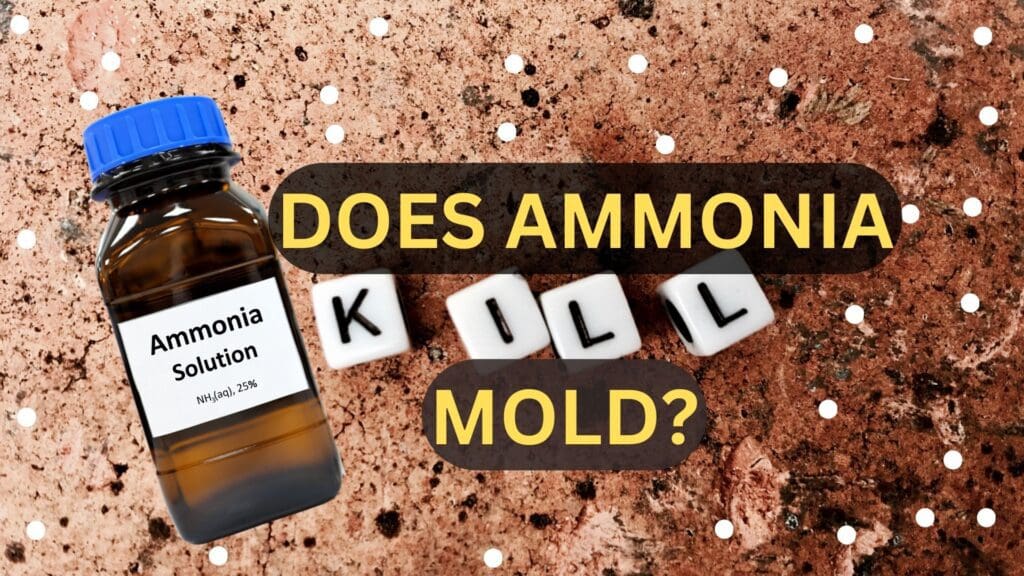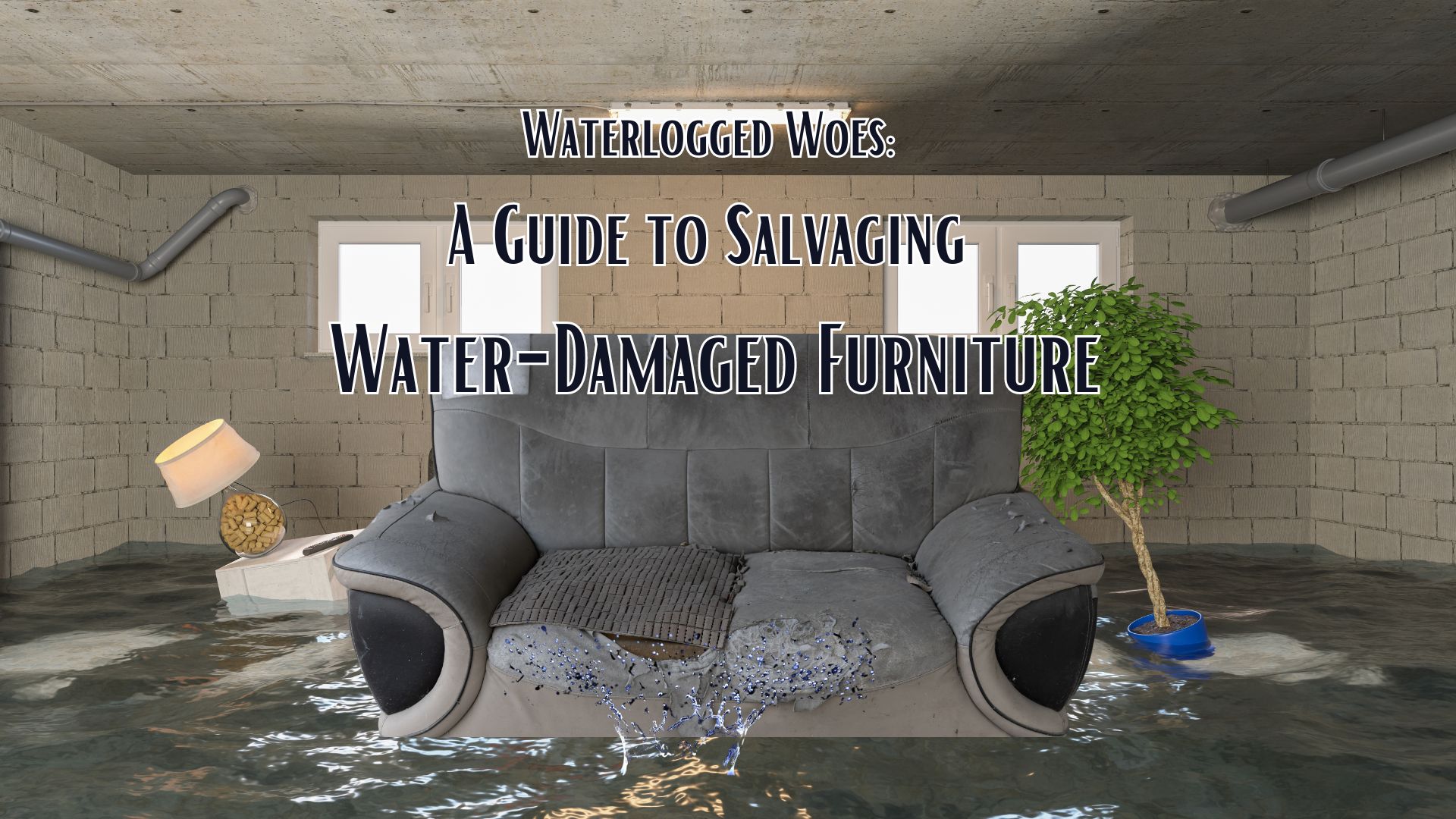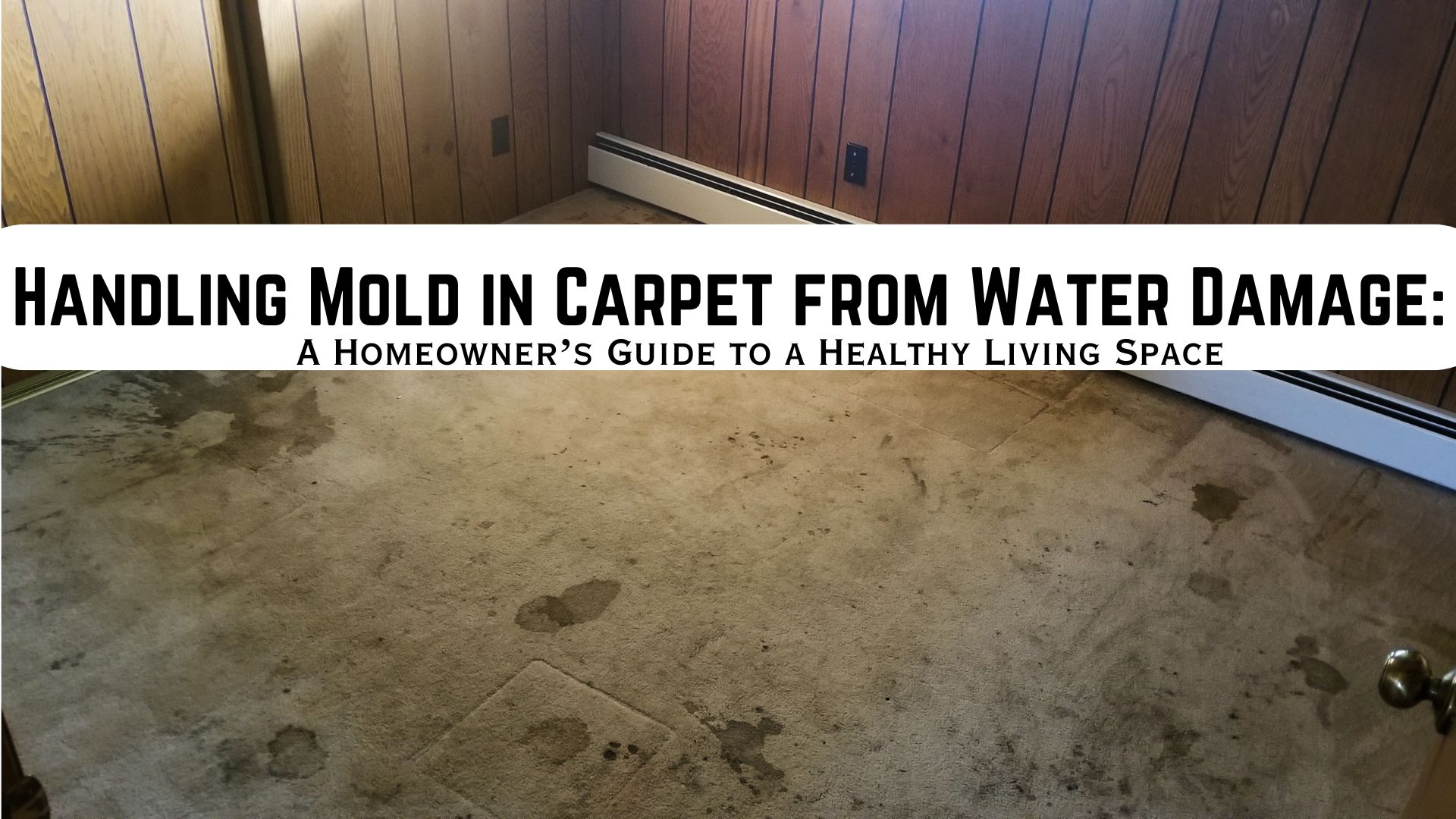Mold is an unwelcome guest in many households, and the battle to eliminate it is a common one. Homeowners often turn to a variety of cleaning solutions to combat mold growth on porous surfaces like wood or drywall. Among these solutions, ammonia is a popular choice. But the question remains: Does ammonia kill mold effectively, or are there better alternatives?
In this article, we will answer the question, “Does ammonia kill mold?” and explore the effectiveness of ammonia, its risks, and when it should be used to combat mold.
Does Ammonia Kill Mold?
The Battle of Cleaning Agents: Chlorine and Ammonia vs. Mold
When it comes to battling mold, two powerful cleaning agents come to mind: chlorine and ammonia. These substances have distinct properties and applications in the realm of mold removal. It’s crucial to understand the advantages and disadvantages of both before deciding which is more suitable for your specific situation.
Chlorine and Ammonia: A Comparative Overview
Chlorine is a potent disinfectant and sanitizer commonly used for mold removal. It effectively kills mold spores and prevents their regrowth. Its active ingredient, sodium hypochlorite, is known for its strong antimicrobial properties, making it a reliable choice when dealing with mold infestations. However, chlorine can be harsh and toxic, posing risks to both the environment and human health. When using chlorine-based cleaning solutions, adequate ventilation and protective gear are essential.
Ammonia, on the other hand, is a versatile cleaning agent widely used in households. While it may not be as potent as chlorine in terms of mold-killing abilities, it is effective, particularly against certain mold species. Household ammonia is readily available and more user-friendly compared to chlorine. It is crucial to note that ammonia should never be mixed with chlorine, as the combination can produce harmful gases.
Does Ammonia Kill Mold Effectively?
Ammonia is indeed effective at killing mold, but its effectiveness depends on various factors, including the type of mold and the surface it has infested. Ammonia can be particularly useful when dealing with common household molds on non-porous surfaces like glass and tiles. However, it may not be the best choice for porous surfaces such as wood or drywall.
When using ammonia to combat mold, it’s important to follow these steps:
- Prepare an Ammonia Solution: Create an ammonia solution by mixing equal parts of household ammonia and water in a spray bottle. This diluted solution is more manageable and safer to use than pure ammonia.
- Spray and Wait: Apply the ammonia solution to the affected area using a spray bottle. Ensure the affected area is well-saturated. Allow the solution to sit for at least five minutes to give it time to penetrate the mold.
- Scrub Gently: After the waiting period, gently scrub the mold-infested area with a brush or sponge. This will help dislodge the mold and make it easier to remove.
- Rinse and Repeat: Rinse the area thoroughly with clean water and wipe it dry. If the mold is still present, repeat the process until it’s gone.
When Should You Use Ammonia to Kill Mold?
Ammonia is most effective for small-scale mold problems, particularly on non-porous surfaces. Here are some situations where using ammonia can be a suitable choice:
- Bathroom and Kitchen Mold: Ammonia can effectively tackle mold that commonly occurs in bathrooms and kitchens, where moisture levels are high.
- Glass and Tile Surfaces: It works well on glass shower doors, tiles, and other non-porous surfaces where mold growth is visible.
- Mild Mold Infestations: If you’re dealing with a relatively small and manageable mold problem, ammonia can be a practical solution.
However, when mold infestations are extensive, or the affected area is porous, ammonia may not be the most efficient option. In such cases, professional mold remediation might be necessary.
Does Ammonia Kill Mold? The Risks and Precautions
While ammonia can be an effective mold-killing agent, it is essential to understand the associated risks and take appropriate precautions when using it for mold removal.
Harsh and Toxic Nature
Ammonia is considered a hazardous substance when used improperly. It can release fumes that are not only harsh but also toxic when inhaled. Therefore, when working with ammonia-based solutions, make sure to:
- Provide Adequate Ventilation: Ensure good airflow by opening windows and doors to disperse ammonia fumes. Use fans and wear a mask if necessary.
- Wear Protective Gear: Use gloves, goggles, and a mask to protect yourself from contact with the ammonia solution and its fumes.
- Keep Ammonia Away from Chlorine: Never mix ammonia and chlorine-based products, as this can create harmful and potentially deadly gases.
Environmental Impact
Ammonia can also have downsides on the environment. Disposing of ammonia-containing wastewater incorrectly can contaminate water sources, harming aquatic life. To minimize the environmental impact of using ammonia:
- Properly Dispose of Wastewater: Dispose of any wastewater used in cleaning in accordance with local regulations and guidelines.
- Minimize Runoff: Avoid letting excess ammonia solution flow into storm drains or open water bodies.
- Use Environmentally Friendly Alternatives: Consider using alternative, eco-friendly mold removal products if environmental concerns are a priority for you.
Best Practices for Using Ammonia to Kill Mold
To ensure you effectively and safely use ammonia for mold removal, follow these best practices:
- Read and Follow Labels: Always follow the manufacturer’s instructions and safety guidelines when using ammonia-based products.
- Dilute Ammonia: It’s safer to use diluted ammonia solutions for mold removal, as they are less harsh and toxic.
- Protect Yourself: Wear protective gear, including gloves, goggles, and a mask, when working with ammonia.
- Avoid Mixing: Never mix ammonia with bleach or other cleaning products to prevent the release of harmful gases.
- Test on a Small Area: Before applying ammonia to a larger mold-infested area, test it on a small, inconspicuous spot to ensure it won’t damage the surface.
- Ventilate the Area: Ensure proper ventilation to reduce exposure to ammonia fumes. Open windows, doors, and use fans.
- Dispose of Wastewater Properly: Dispose of wastewater containing ammonia according to local regulations to prevent environmental contamination.
The Effectiveness of Ammonia vs. Other Mold Removal Methods
Ammonia is just one of several options for removing mold from your home. Depending on the severity of the infestation and the surface it has affected, other methods may be more appropriate. Let’s compare the effectiveness of ammonia with some common mold removal methods.
Bleach and Ammonia: A Dangerous Combination
It’s crucial to emphasize that you should never mix bleach and ammonia when attempting to kill mold. The combination of these two substances produces toxic chloramine gas, which can lead to serious health problems, including respiratory issues and even death. Always use these cleaning agents separately and with great caution.
Bleach vs. Ammonia
Bleach is another popular choice for mold removal. It is effective at killing mold on both porous and non-porous surfaces. However, bleach can be harsh on certain materials and surfaces, potentially causing discoloration or damage. It’s essential to use bleach in a well-ventilated area, wear protective gear, and follow the manufacturer’s instructions.
When comparing bleach and ammonia for mold removal, consider the following:
- Bleach is suitable for both porous and non-porous surfaces.
- Ammonia is more suitable for non-porous surfaces.
- Both require proper ventilation and protective gear.
- Ammonia is less likely to cause discoloration on surfaces.
Professional Mold Remediation
For extensive mold infestations or when mold growth occurs within your home’s structural components, professional mold remediation may be necessary. Mold removal specialists have the expertise, equipment, and experience to handle severe mold problems safely and effectively.
Professional mold remediation offers several advantages:
- Identification and removal of the root cause of mold growth.
- Comprehensive cleanup to prevent mold recurrence.
- Expertise in dealing with hazardous molds.
- Minimizing risks to health and property.
While professional mold remediation comes at a cost, it is often the best option for severe mold problems or when the affected area is within your home’s structure.
Does Ammonia Kill Mold? Seek a Professional For Better Mold Remediation
Does ammonia kill mold?— Yes. In the battle against mold, ammonia is a potent ally, particularly when dealing with small-scale infestations on non-porous surfaces like glass and tile. However, it’s important to use ammonia with caution, taking necessary precautions to protect your health and the environment. When in doubt or when facing extensive mold growth, it’s advisable to consult with professionals who can handle mold remediation safely and effectively.
Remember that the choice between ammonia and other cleaning agents depends on the severity of the problem, the surface affected, and the potential risks involved. By understanding the pros and cons of each method, you can make an informed decision to keep your home mold-free and safe.
Got Mold Issues? Superior Restoration is the Answer
Mold professionals play a pivotal role in addressing the diverse and often challenging types of mold infestations that homeowners encounter. While household remedies like ammonia can effectively combat common mold issues, mold species vary in their resistance and the surfaces they affect. Understanding when and how to use ammonia to kill mold is crucial.
Homeowners often wonder, “Does ammonia kill mold?” Superior Restoration not only has skillful mold professionals but also tools and experience to solve serious mold cases. By employing a combination of advanced techniques and a comprehensive understanding of mold behavior, these specialists ensure that even the most stubborn mold species are eradicated safely and efficiently. Please don’t hesitate and call us, today!





